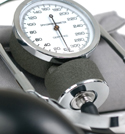February 2011 to April 2011

What’s New
- Unholy Alliances in Healthcare Services
COHED Research Report - Doctors not giving patients enough time, says WHO
Times of India,April 24, 2011 - Rx Track those pills
The Telegraph, November 07, 2011 - Doctors-pharma companies harming patients
Assam Tribune, October 22, 2011
Health Updates
Press Room
Doctors not giving patients enough time, says WHO
Times of India, April 24, 2011
According to a report of WHO in all the developing countries doctors’ average dispensing time of a patient is one minute, which gives them no time to explain the drugs and its regimen. This is not only leading to the acute complaints but also to the chronic diseases. WHO feels countries are investing little in promoting rational use of drugs. More
Centre seeks to make health sector more transparent
The Hindu, April 20, 2011
Disappointed by the knowledge management system for the health sector, the Department of Health Research is drafting a knowledge management policy for the country. This will help in improving the quality of research and development of various disciplines. The policy also seeks to enhance the role of public private partnership and preparing national information system of research funding. More
Indian pharma in tough battle for generic riches
The Economic Times, April 13. 2011
Several major Indian pharmaceutical companies will compete for a host of big ticket drugs worth $ 100 billion coming off patent over the next two years. However, there is a threat of a lot of rising competition and law suit for those companies. More
Centre plans policy to curb irrational use of antibiotics
Times of India, April 8, 2011
The Union Health Ministry has formalized a National Policy for Containment of Antibiotic Resistance (still awaiting Health Minister’s approval). Under the policy, the third and fourth generation antibiotics can not be recommended to the patients without proper sanctions. More
Drug MNCs barred from raising prices
Times of India, April 4, 2011
National Pharmaceutical Pricing Authority (NPPA) has barred several global pharma companies from increasing prices of imported medicines. The decision has been taken in the light of their refusal to share pricing details of such brands in the domestic market.. More
Glaxo may pay Rs. 71 cr for not selling drugs at govt rates
The Financial Express, April 3, 2011
The major pharma company GlaxoSmithKline Pharmaceutical was directed by the Apex Court to deposit Rs. 71.21 crore in the Drug Price Equalization Account (DPEA) for over-pricing of drugs between, May 1981 to August 25, 1987. More
When doctor’s prescription becomes injurious to health!
The Hindu, March 27, 2011
The illegible writing of doctors is causing severe damage to the patient’s health. A study by the Royal College of General Practitioner found that 3-5 % of doctor’s prescriptions contain errors mostly harmless (grade D), but sometime its lethal (grade A) also. The guidelines are very stringent in this regard but not the implementation. More
Pranab takes back plan to levy ‘misery tax’ on health
Times of India, March 23, 2011
Proposed tax on healthcare services has been withdrawn by the Finance minister Pranab Mukherjee. Earlier in his budgetary proposal, Finance Minister proposed to levy service tax on treatment and the diagnostic tests in air-conditioned hospitals. The Ministry was hoping to net Rs. 700 crore from this measure. More
Health Ministry sets up task force on Pharma industry
The Hindu, March 15, 2011
The Ministry of Health and Family Welfare has constituted a task force in order to evolve a long term strategy to address various dilemmas faced by the Indian pharma industry. The task force is scheduled to submit its first report in three months. More
Uttaranchal takes up PPP model to provide healthcare
The Financial Express, March 14, 2011
Uttaranchal government has involved a host of private player in the healthcare sector with a public-private partnership deal. This decision has been taken following the report of the task force setup by the health and family welfare ministry on the recommendation of Working Group of Planning Commission, and which found that private sectors looked after a major part of healthcare services in India. More
Govt Bans use of four drugs, more to follow
The Economic Times, February 18, 2011
Health ministry has banned four drugs having adverse effects on the human beings. The safer alternative of all the drugs are already available in the market. These drugs were under scrutiny from last year due to concerns over their side effects. The number might increase in all likelihood, as there are several other drugs also which are under the scanner of the Drug Technical Advisory Body. More
Fake drugs: Whistle-blowers to be rewarded
DNA, February 12, 2011
To cease the market of fake or spurious drugs the drug control department has decided to implement the whistle blower scheme. Under this scheme the whistle blower will be rewarded for his information. This scheme is sponsored by Central Drugs Standard Control Organization (CDSCO) and aims to strengthen the information network against fake drugs More
